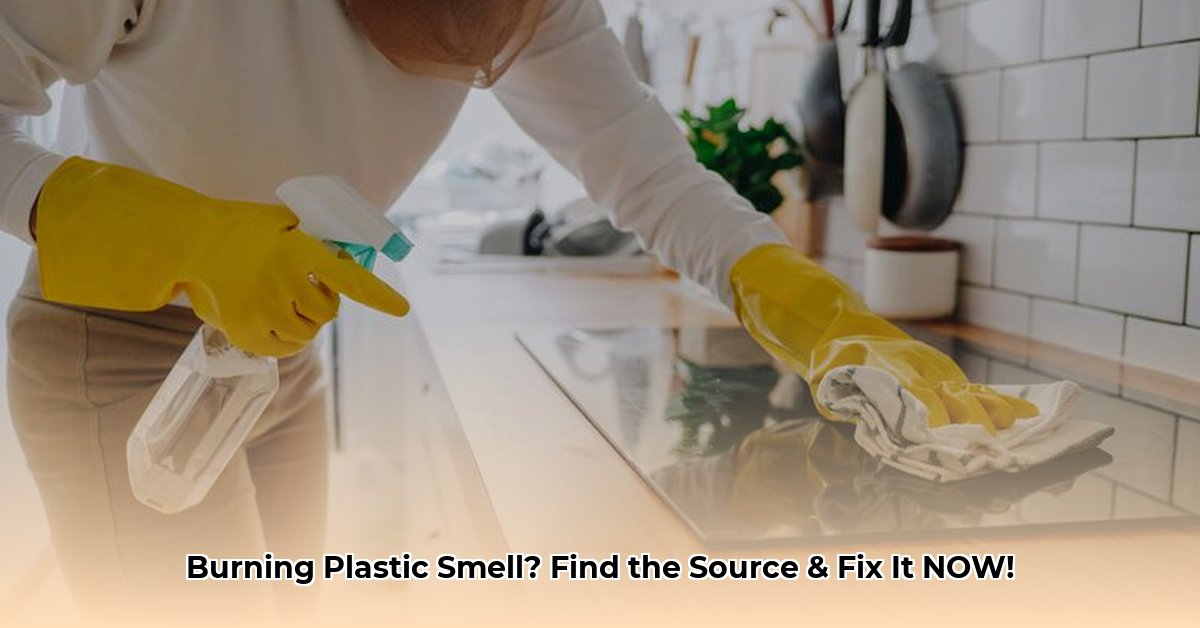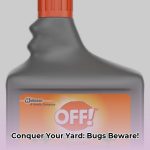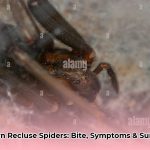A burning plastic smell is a serious warning sign that shouldn’t be ignored. This guide provides clear, actionable steps to identify the source, address the problem, and prevent future incidents.
Identifying the Source: Playing Detective
If the smell is intense or accompanied by smoke, immediately evacuate everyone and call 911. Do not attempt to investigate until the fire department deems it safe.
If the situation appears less urgent (no visible smoke or flames), carefully investigate the most likely sources, starting where the smell is strongest.
Common Culprits
- Kitchen Appliances: Inspect all heating elements (oven, stovetop, toaster, microwave). Unplug any appliance emitting smoke or unusual odors. A melted plastic utensil or food wrapper might be the simple answer.
- Electrical Outlets and Wiring: Carefully check outlets and switch plates for unusual warmth or discoloration. If detected, turn off the power to that circuit at the breaker box. Never attempt to repair wiring yourself – contact a qualified electrician.
- HVAC System: A burning smell from vents might be dust burning off upon initial use (especially with heating systems). If it persists, shut off the system and contact an HVAC technician. A malfunctioning motor, wiring issue, or melted component within the unit could be the problem.
- Electronics: Overheating electronics can emit a burning plastic smell. Check for excessive warmth, strange noises, or a melting odor from vents. Unplug any suspect device immediately.
- Other Potential Sources:
- Rodents: Gnawing on wires within walls poses a serious fire hazard.
- Water Damage: Moisture can corrode wires, leading to overheating.
- Fireplace: A dirty chimney or burning damp wood can produce a similar odor to burning plastic.
- Water Heater: Failing components within the water heater might be the source.
Addressing the Smell and Preventing Recurrence
Clearing the Air
Ventilate the area by opening windows and doors. Natural ventilation is the most effective way to dissipate the odor.
Consider using odor absorbers like:
- White Vinegar: Place bowls of vinegar around the affected area.
- Baking Soda: Sprinkle on carpets and upholstery, let sit overnight, then vacuum.
- Activated Charcoal: This is a highly effective odor absorber.
- Coffee Grounds: Place bowls of dry coffee grounds around the room.
- Boiling Citrus Peels: This can neutralize odors and freshen the air.
- Air Purifier: A purifier with an activated charcoal filter can be very effective.
Thoroughly clean any affected surfaces. Washable fabrics can be laundered with vinegar. Clean hard surfaces with soap and water.
Preventing Future Incidents
- Regular Appliance Inspections: Inspect appliances for signs of wear, damage, or unusual function.
- Avoid Outlet Overload: Distribute electrical loads across different circuits. Use power strips with surge protectors, but avoid overloading even these.
- Proper Plastic Storage: Store plastic items away from heat sources.
- HVAC Maintenance: Regularly clean or replace HVAC filters. Schedule professional inspections as recommended by the manufacturer or your HVAC technician.
- Electrical System Checkups: Consider having a qualified electrician inspect your home’s wiring, especially in older homes.
- Rodent Control: Take measures to prevent rodent infestations, which can pose a fire hazard.
When to Call a Professional: Don’t Hesitate!
Electrical issues are best left to qualified professionals. Contact a licensed electrician if:
- You suspect faulty wiring, sparking outlets, or frequently tripped breakers.
- The burning plastic smell persists after checking appliances and outlets.
- You’re unsure about the source or uncomfortable troubleshooting yourself.
Electrical Fire Hazards: Recognizing the Signs and Taking Action
The smell of burning plastic can indicate a serious electrical fire hazard. While various factors can cause this smell, overheating electrical insulation is a primary concern. Heat from overloaded circuits, loose connections, or faulty appliances can melt the plastic insulation around wires, creating the telltale odor.
Warning Signs (Beyond the Smell)
- Flickering/Dimming Lights: This suggests a problem with the wiring or a circuit overload.
- Discolored/Warm Outlets/Switches: Indicates overheating.
- Buzzing/Crackling Sounds: Could signify electrical arcing, a dangerous phenomenon that can ignite nearby materials.
What To Do If You Suspect an Electrical Fire
- Cut the Power: Turn off the breaker controlling the affected area, or the main breaker if unsure.
- Call 911: Even if you think you’ve resolved the issue, professional assessment is critical.
- Evacuate Immediately: Get everyone, including pets, out of the house.
- Don’t Extinguish with Water (Unless…): Only attempt to extinguish a very small, contained electrical fire with a Class C fire extinguisher if you are trained and confident in its use. Water conducts electricity and can be extremely dangerous in electrical fires.
Long-Term Prevention: Proactive Safety Measures
- Regular Electrical Inspections: A qualified electrician can identify hidden dangers.
- Electrical Panel Upgrade: An outdated panel may not handle modern demands.
- Arc-Fault Circuit Interrupter (AFCI) Installation: AFCIs detect and interrupt dangerous electrical arcs.
- Avoid Circuit Overload: Distribute electrical loads and avoid overloading outlets.
By understanding the causes of a burning plastic smell, taking appropriate action, and implementing preventative measures, you can significantly enhance the safety of your home. While some aspects of electrical safety are still under research, adhering to established guidelines and consulting with qualified professionals is crucial for minimizing risks.
- Burning Plastic Smell in House: Causes, Solutions, and Safety Measures - April 8, 2025
- Best Bug Killer for Yard: Effective Pest Control Guide (2024) - April 8, 2025
- Brown Recluse Spider Bites: Identification, Treatment, and Prevention - April 8, 2025










